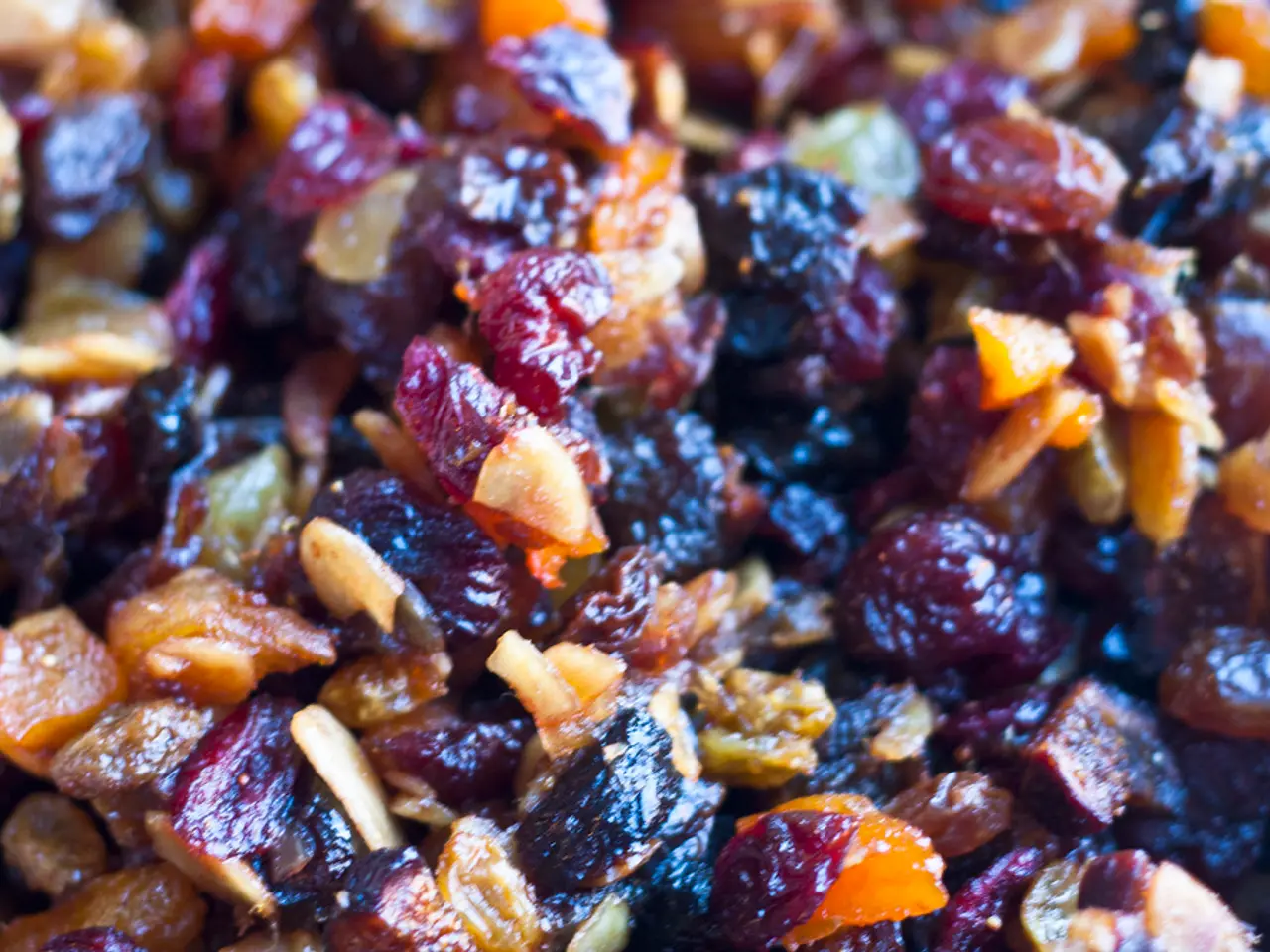Unveiling the Positive Aspects, Yet Exposing Potential Drawbacks
Oatmeal, a popular breakfast choice, is renowned for its health benefits, including heart health, blood sugar management, and digestion. However, like any food, it comes with potential concerns that should be addressed.
One such concern is oat allergy, which can cause symptoms ranging from mild skin rashes and itchy throat to severe anaphylaxis. Reactions may worsen with repeated exposure. If you experience symptoms upon consuming oats, it's crucial to seek medical advice and carry an epinephrine auto-injector if prescribed.
Another issue arises from the high soluble fiber content in oatmeal, particularly beta-glucan. Eating too much oatmeal too quickly can lead to bloating, gas, and other gastrointestinal discomfort. To address this, introduce fiber-rich oatmeal gradually to allow the digestive system to adapt and reduce bloating or gas.
Gluten cross-contamination is another concern for people with celiac disease or gluten intolerance. Although oats are naturally gluten-free, they are frequently processed with gluten-containing grains, posing a risk. Some with celiac may also react to avenin, a protein in oats, causing gut inflammation. To avoid cross-contamination, choose oats labeled gluten-free and consider regular medical check-ups if you have gluten sensitivity or celiac disease.
Regarding blood sugar management, instant oats have a higher glycemic index than steel-cut oats, potentially leading to quicker spikes in blood sugar. To mitigate this, prefer less processed forms like steel-cut oats for a lower glycemic impact and more gradual blood sugar rise.
Lastly, it's essential to be aware that many commercial oatmeal products may contain hidden sugars and additives. To ensure a healthier choice, consider opting for whole-grain oatmeal like old-fashioned oats or "hercules" oats, which have a low glycemic index and digest slowly, providing a steady rise in blood sugar.
In summary, regular oatmeal consumption can be beneficial, but potential allergy, digestive, and gluten-related concerns can be managed by choosing appropriate oat types, gradual intake, and being mindful of the ingredients in commercial products. Maintaining dietary variety and balance is also crucial to prevent excessive fiber intake and ensure nutrient diversity.
- Science has highlighted the benefits of oatmeal for health-and-wellness, with evidence showing its positive impact on heart health, blood sugar management, digestion, and fitness-and-exercise through increased energy and satiety.
- However, nutrition experts emphasize the importance of a healthy-diet that includes a variety of foods, and encourage being mindful of potential issues, such as oat allergy, high fiber content leading to gastrointestinal discomfort, and gluten contamination in certain oat products, for those with celiac disease or gluten intolerance.
- To maintain a balanced healthy diet, one should opt for whole-grain oatmeal products with low glycemic index, like old-fashioned oats or "hercules" oats, and avoid commercial products with hidden sugars and additives. Adopting these practices provides a steady rise in blood sugar as well as overall health benefits that incorporate science, health-and-wellness, fitness-and-exercise, and nutrition.




